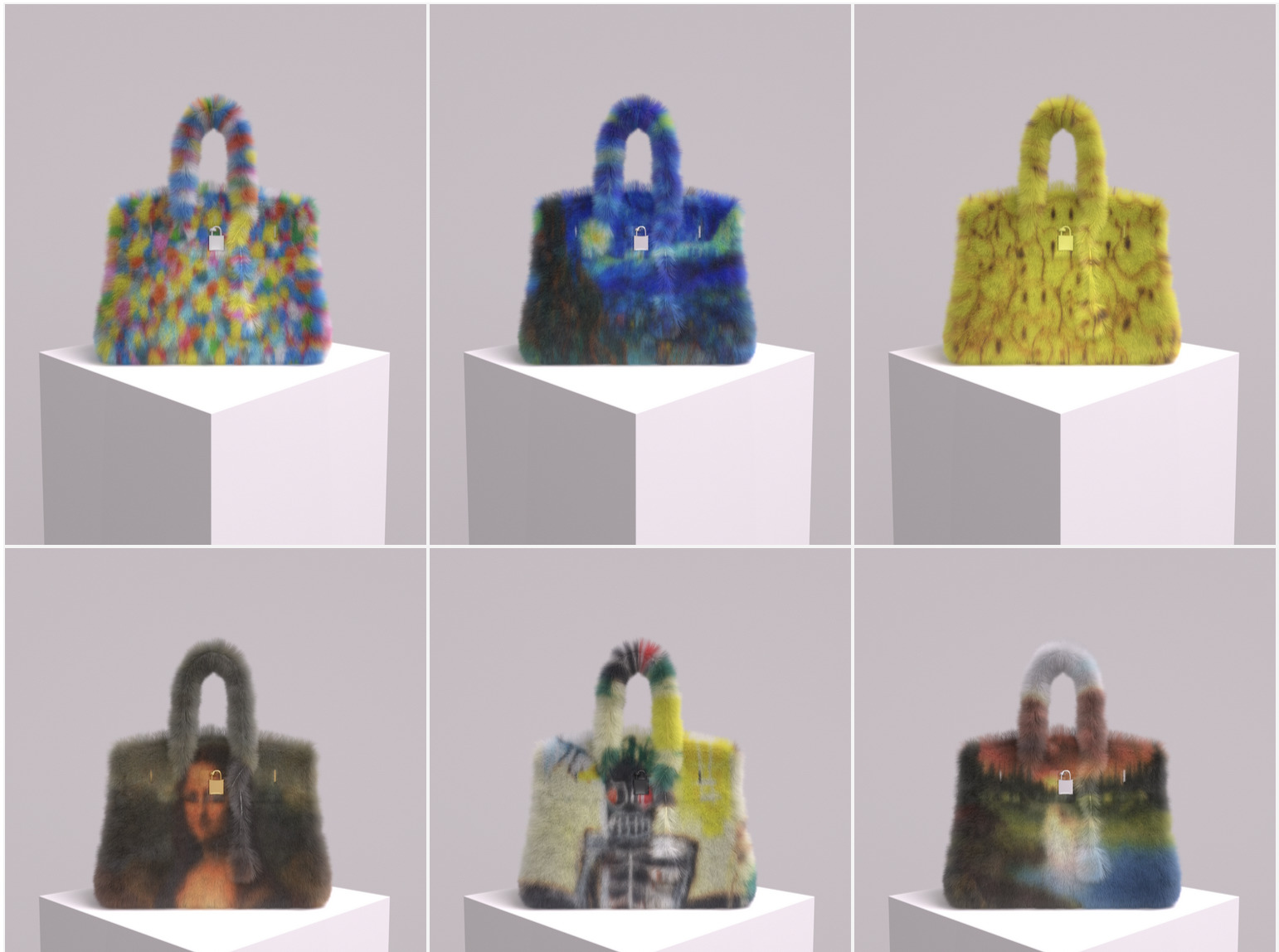“A reasonable juror could conclude that Rothschild’s claims that he viewed MetaBirkins as a largely artistic endeavor is a fabrication.” – Judge Rakoff
Luxury fashion brand Hermès won their trademark lawsuit against Mason Rothschild, the creator of the non-fungible tokens (NFT) MetaBirkins, on Wednesday. The trial was the first legal case that tested the bounds of artistic expression in NFTs against the country’s intellectual property laws.
A nine-member New York jury ordered Rothschild to pay Hermès $110,000 for infringing on the luxury brand’s trademark, and $23,000 for cybersquatting. The jury ruled that Rothschild had to pay the cybersquatting damages because he used a domain name confusingly similar to that of Hermès.
Hermès was able to successfully argue that Rothschild infringed on its trademark for Birkin bags, a line of bags that range in price up to $500,000.
Rothschild launched the MetaBirkins NFT line in 2021, and it contained an array of 100 digital images of fluffy Birkin bags. The NFTs fetched a hefty price of about $790,000 in cryptocurrency.
What’s at Stake?
Rothschild’s lawyers attempted to make the case that his work was protected by the First Amendment. They also likened the case to that of pop artist Andy Warhol and his famous Campbell’s Soup Cans paintings.
However, Hermès was able to successfully argue that Rothschild’s work impeded their ability to enter the NFT space. While the fashion brand said it does not currently sell NFTs, it said that it has developed plans to in the future.
In the trial, Hermès also cited news reports that falsely stated that MetaBirkins was connected to or approved by Hermès. This bolstered its claims that the NFT artwork was causing confusion.
Rothschild also argued that the inclusion of “Meta” in the name of his NFT line drew enough distinction between his artwork and the fashion brand and added to the artistic value of his work. But Hermès saw it much differently, as a clear violation of the fashion brand’s trademark.
Before the jury reached its verdict on Wednesday, both sides in the case were denied motions for summary judgment last week. On February 2, District Judge Jed S. Rakoff explained why he would put certain questions in the case before a jury.
Rothschild’s primary argument was the application of the Rogers Test, originating from the 1989 case Rogers v. Grimaldi. This legal test states that artists are protected from trademark infringement if they make an artistic expression, rather than just selling a good, and do not mislead consumers.
The district judge found “the MetaBirkins images… suggest that they were originated as a form of artistic expression,” and thus the Rogers test applied. Of course, this did not mean that Rothschild was in the clear, as his lawyers still needed to prove that it did not cause confusion.
Rakoff also stated that Rothschild attempted to differentiate the NFT line from the fashion brand’s product, but ultimately it would be up to a jury to determine if it was infringement.
An important piece of evidence in favor of Hermès was text communication from Rothschild in which he said that he was sitting on a goldmine.
“A reasonable juror could conclude that Rothschild’s claims that he viewed MetaBirkins as a largely artistic endeavor is a fabrication,” wrote Rakoff.
Ongoing Legal Battles
The trial was the first of its kind in the United States, and thus it attracted much attention from legal analysts and experts.
NFTs became a booming industry that helped spur the frenzy in the cryptocurrency market throughout 2021. While the cryptocurrency market has subsequently crashed, big players are still attempting to enter the NFT market.
So, both IP lawyers and those with a financial interest in the NFT market were closely following this landmark case.
In a previously published IPWatchdog article, three attorneys from Norton Rose Fulbright US wrote about the case, “it seems that the possibilities for NFTs are endless but litigation, particularly around intellectual property rights – especially trademarks and copyright – is likely to define those possibilities.”
Litigation surrounding NFTs and intellectual property laws is just getting off the ground. There are several high-profile NFT-related IP lawsuits currently ongoing, including Nike, Inc. v. Stockx LLC, in which Nike is suing the online marketplace StockX for trademark infringement related to StockX’s Vault NFT Collection.
And according to Mason Rothschild, he and other artists will also not be giving up the legal battle.
The creator of MetaBirkins tweeted, “what happened today was wrong. What happened today will continue to happen if we don’t continue to fight. This is far from over.”

![[IPWatchdog Logo]](https://ipwatchdog.com/wp-content/themes/IPWatchdog%20-%202023/assets/images/temp/logo-small@2x.png)


![[Advertisement]](https://ipwatchdog.com/wp-content/uploads/2024/04/UnitedLex-May-2-2024-sidebar-700x500-1.jpg)
![[Advertisement]](https://ipwatchdog.com/wp-content/uploads/2024/04/Artificial-Intelligence-2024-REPLAY-sidebar-700x500-corrected.jpg)
![[Advertisement]](https://ipwatchdog.com/wp-content/uploads/2024/04/Patent-Litigation-Masters-2024-sidebar-700x500-1.jpg)

![[Advertisement]](https://ipwatchdog.com/wp-content/uploads/2021/12/WEBINAR-336-x-280-px.png)
![[Advertisement]](https://ipwatchdog.com/wp-content/uploads/2021/12/2021-Patent-Practice-on-Demand-recorded-Feb-2021-336-x-280.jpg)
![[Advertisement]](https://ipwatchdog.com/wp-content/uploads/2021/12/Ad-4-The-Invent-Patent-System™.png)






Join the Discussion
One comment so far.
Anon
February 9, 2023 04:53 pmIs this case really done? That is, is this a battle won, or the war that has been won?
Methinks just a battle.